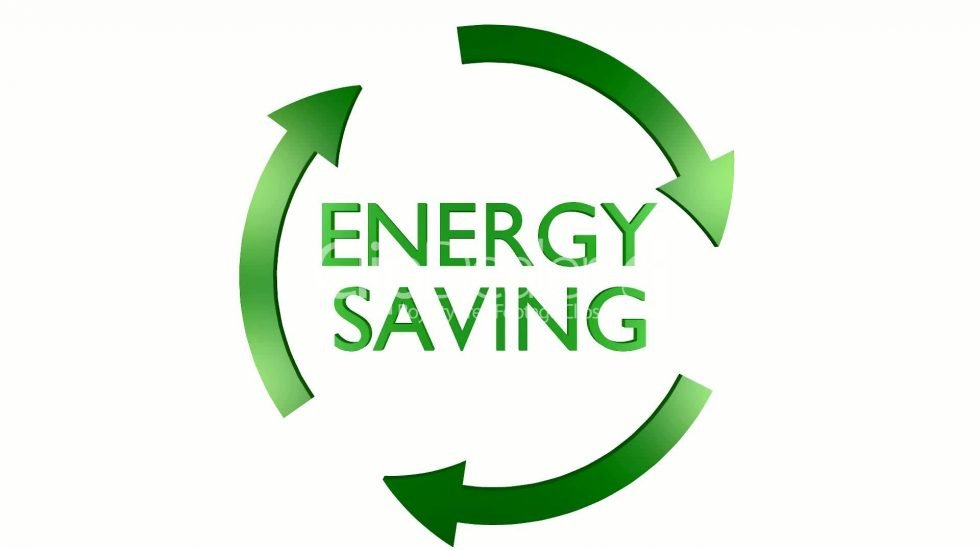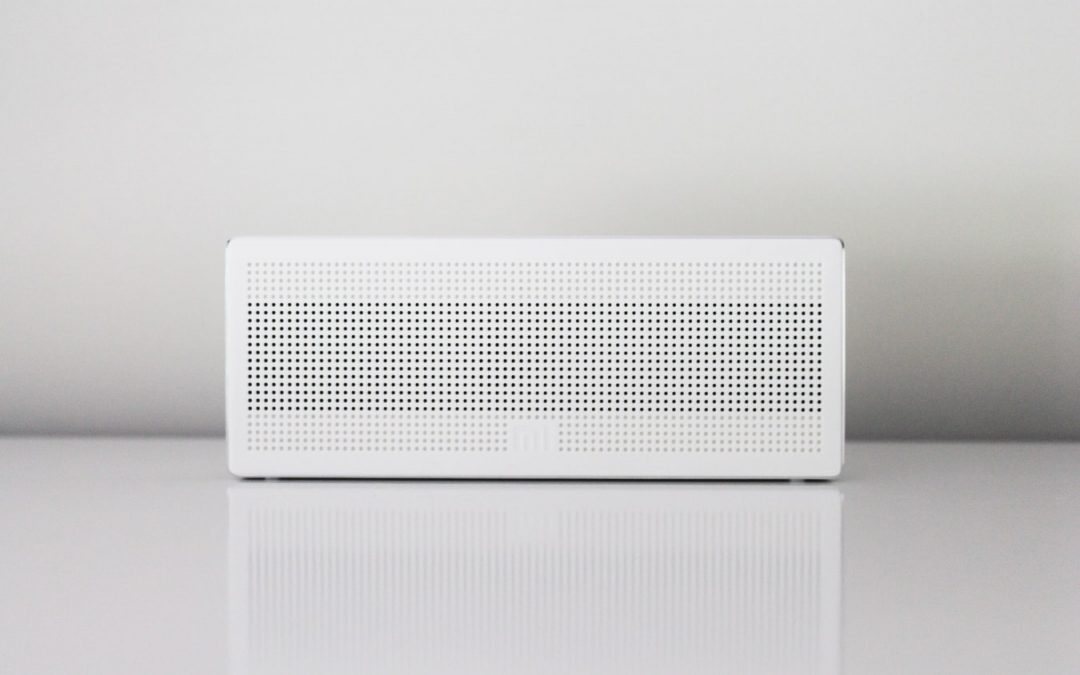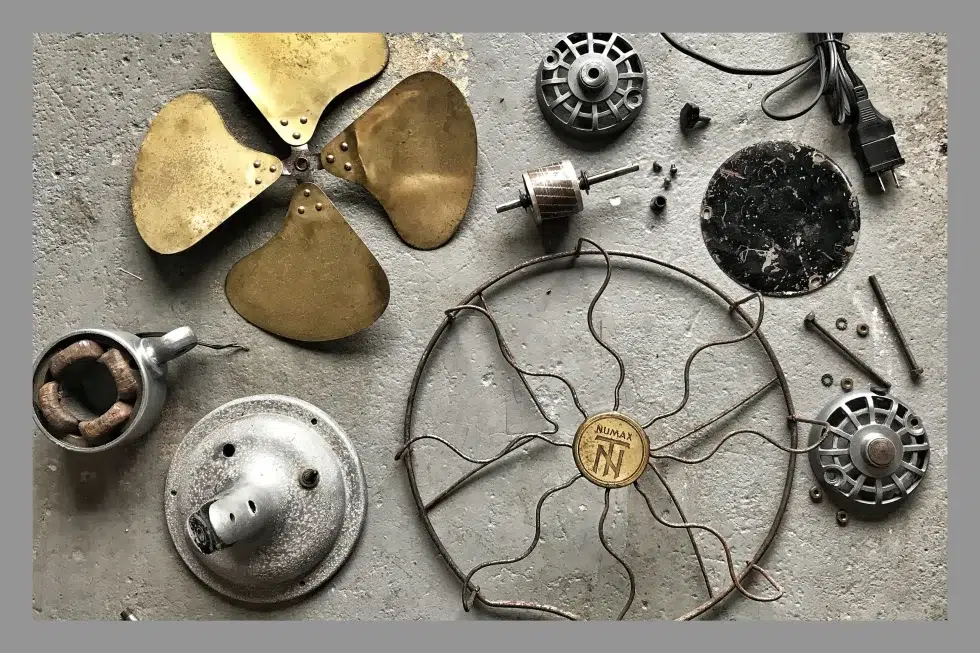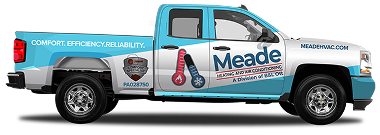How to choose the right air conditioner

Choosing the right air conditioner can get overwhelming. You have so many different models to choose from. This includes a variety of brands, types, features, efficiency ratings, and more. When it comes to finding the right air conditioner, you can rely on the professionals at Meade. Our knowledgeable professionals can help you find the perfect fit for your home and family. Check out these helpful tips below.
Types of Air Conditioning Units
The first step in choosing the right air conditioner for your home is to determine what type of air conditioner you want. The main types of air conditioning units are:
- Central air conditioning
- Ductless and mini-split air conditioners
- Window and portable AC units
- Hybrid HVAC systems
- Geothermal heating and cooling
You can read our full breakdown of each type of air conditioner below.
Central Air Conditioning
Central air conditioners provide a great option if your priorities include even temperatures, filtered air, and cooling a large area. This type of system includes an outdoor unit, an indoor air handler, and air ducts.
The outdoor unit houses the condenser coil, compressor, electrical components, and a fan. The indoor unit contains the evaporator and blower. Then the air ducts direct the air throughout your home. If your home already has air ducts, installation is relatively simple. However, if you do not have air ducts, installing new ones can get complicated. The ducts also require maintenance to avoid problems such as dusty air, mold, and mildew.

Another option you may want to consider includes a packaged system. These systems contain all of the components in one cabinet and can include heating elements as well. This cabinet usually resides right outside the building or on the rooftop. This is a common option for commercial buildings but can provide a useful option in certain homes as well.
Pros
- Even temperature throughout your home
- Can cool large areas
- Filtered air
- Packaged units with both heating and air conditioning
- The additional option of programmable thermostats
Cons
- More expensive to run on a monthly basis (Exception: larger buildings)
- Need for ductwork installation
- Air duct maintenance
- Conditioned air can be lost through ducts
Ductless and Mini-split Air Conditioners
Mini-split systems are efficient options for smaller areas. They can get expensive when cooling an entire house, though. They are more efficient than central air conditioning, as the air does not get lost through the air ducts. According to the U.S. Department of Energy, “Duct losses can account for more than 30% of energy consumption for space conditioning, especially if the ducts are in an unconditioned space such as an attic.”
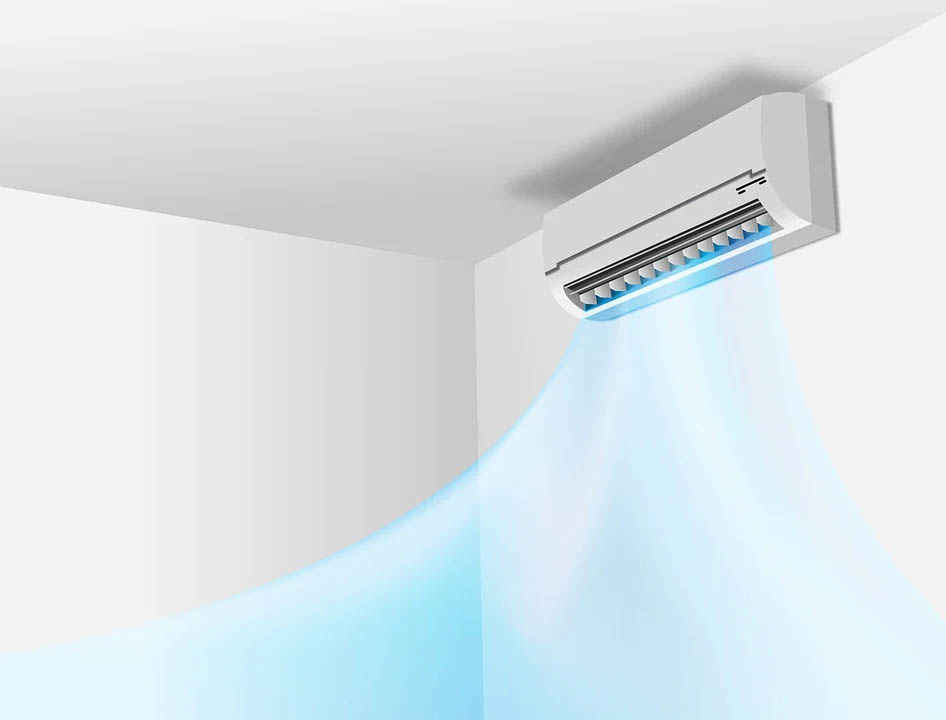
If you prefer an air conditioner that operates independently rather than as part of a central system, a ductless system presents itself as a viable option. Unlike a central air system that cools your entire building evenly, a mini-split system focuses on specific areas. Ductless systems are also useful if you have recently added rooms onto your home or commercial building.
A ductless or mini-split air conditioner consists of a condenser unit placed on the outside of your home and an indoor unit that houses the evaporator and blower. A conduit links the two units. It contains a power cable, refrigerant tubing, suction tubing, and a condensate drain. Mini-split systems are quiet and do not require much space. However, they are not entirely aesthetic and you cannot cover them up.
Pros
- Efficient for cooling small areas
- Quiet
- Require little space
- Do not require ductwork
- Easy to install
Cons
- Expensive to heat large areas
- Not aesthetically pleasing
Window & Portable Units
Two other ductless options include window units and portable air conditioners. These are two of the most common types of air conditioners because they are the most affordable. Here all of the air conditioning components are packed into a single unit.

As the name suggests, window units are installed into a window. The part of the system that hangs out the window releases the heat to leave your room cooler. Like the mini-split air conditioner, they can efficiently cool small areas. However, they are not effective in large areas. Installation is simple and the system can be transferred if necessary.
Portable air conditioners work similarly to the window unit. The main difference comes in how they release heat as they are not attached to a window. Instead, a hose transfers heat away from the air conditioner and room. They also require you to regularly drain the water that they remove from the air. If you prefer your windows to stay clear, you may want to opt for a portable air conditioner.
Pros
- Most affordable unit
- Efficient with the energy they use
- Easy installation
Cons
- Not effective at cooling large spaces
- Blocks window or takes up floor space
- Required water draining
Hybrid HVAC System
Just like a hybrid car, you can get a hybrid HVAC system. A hybrid HVAC system can automatically switch between different fuels. This means maximizing the efficiency of your home and keeping your utility bills low.
Hybrid HVAC systems can both warm and cool your home. In the summer, it absorbs hot air from inside and transports it outside. This keeps your home comfortable and cool. Then in the winter, it works in reverse. It absorbs heat from outside and transports it inside. It may sound strange, but it works because heat energy is always present in the air.
However, in extremely cold conditions, extracting heat from the air requires more energy. When this process becomes inefficient, the hybrid feature steps in. The Hybrid HVAC system switches to an alternative fuel source such as electric, gas, propane, or oil.
Pros
- High efficiency and low running costs
- Can cool and heat your home
- Low maintenance
Cons
- High initial cost
- Difficult to install
Geothermal Heating and Cooling
Yet another energy source includes geothermal energy. Geothermal energy extracts heat from the water underground and transfers it into your home to heat it. This works because the water temperature underground stays relatively consistent at 55℉. Then in the summer, heat gets extracted from your home and transferred underground, thereby cooling your house.

Geothermal energy is more environmentally-friendly than gas and oil furnaces and more efficient than most of them as well. This means you save more money long-term and don’t have to worry about fluctuating costs of gas and oil. These systems last longer, run quietly, and generally experience fewer maintenance issues.
Their main drawback resides with the high initial cost. Also, although geothermal heating is more environmentally-friendly than other choices, it does come with a few drawbacks. This includes high usage of water, possible discharge of sulfur dioxide and silica, and the need for electricity to operate the pump.
Pros
- High efficiency
- More environmentally-friendly than gas and oil furnaces
- Geothermal energy is a renewable resource
- No cost fluctuations for fuel
- Mostly underground
Cons
- High initial cost
- Tricky to install
- Some environmental drawbacks
Important Aspects to Consider When Choosing the Right Air Conditioner
In addition to choosing the right type of air conditioner, there are plenty of other aspects to consider, as well. Here are some tips to help you think things through.
Budget
Your budget is one of the first things to consider when buying a new air conditioner. HVAC systems are one of the largest home investments you will make. You want to invest enough to ensure you get a quality system, but you don’t want to break the bank either.

With this in mind, planning ahead saves you stress. Start saving early so you can get the system you want. If you wait until your air conditioner breaks down, the costs can sneak up on you and the process can become quite stressful.
Yet, Meade does offer financing options, which you can learn more about here: . Together, we can find the best solutions to fit your home and budget.
Size
You should also pay attention to the size you choose. Small systems get overworked and wear out quickly. This will lead to more air conditioning repairs over the system’s lifespan. On the other hand, air conditioners that are too large will likely short-cycle. This means that it will start up and turn off more frequently. Short cycling wastes energy, increases wear-and-tear and leads to more mechanical problems. Additionally, it can affect the humidity levels in your home.
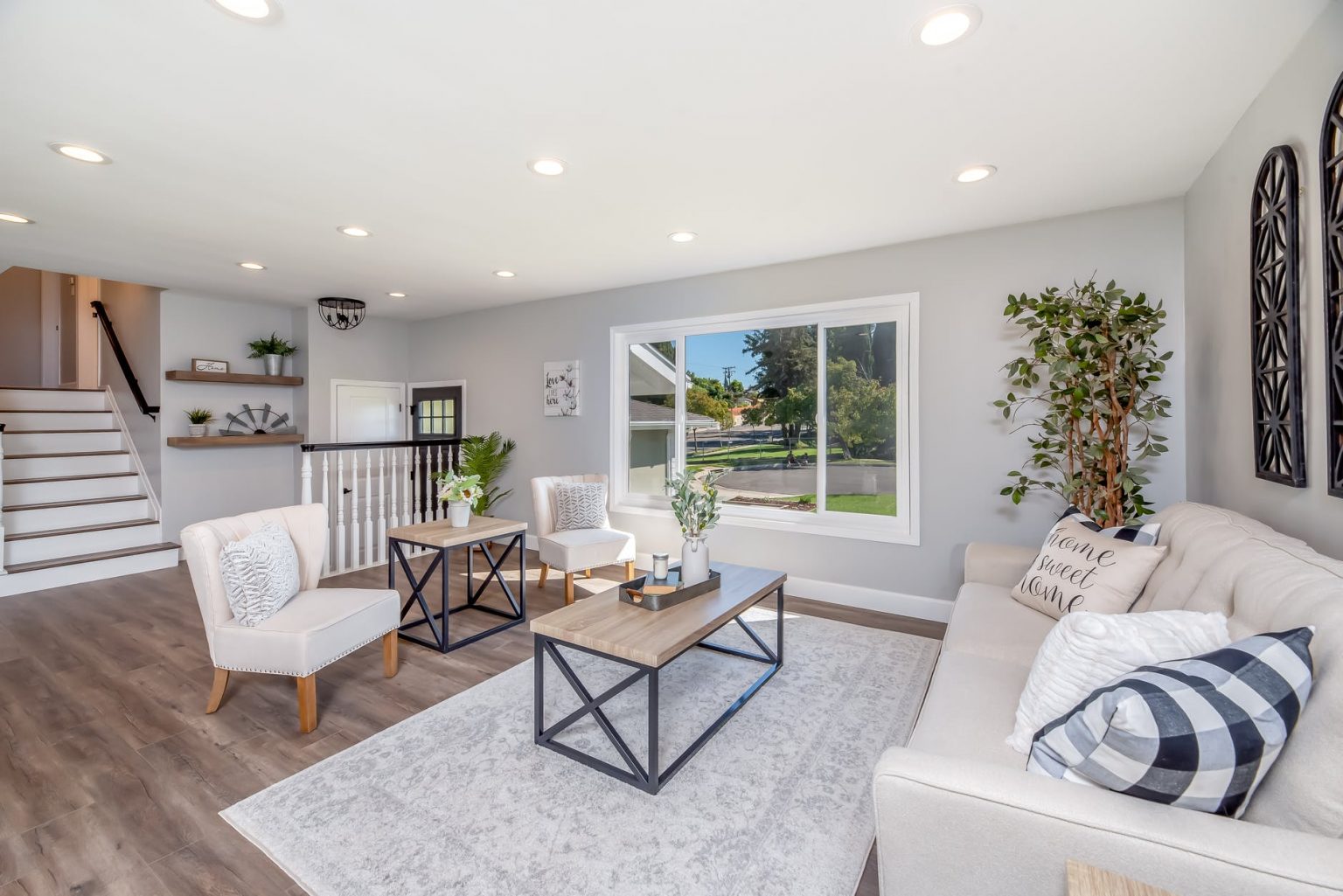
The overall health of your air conditioner depends on the choices you make from the beginning. It is crucial that you choose the right size unit and have your air conditioner installation performed by a knowledgeable HVAC technician, like ours at Meade. Doing so will save you stress and ensure that you get your money’s worth out of your air conditioner.
Desired Features
You will also want to consider the specific needs or desires of your household. You want your family to live comfortably and therefore you should look for features that accommodate them. For instance, if you have a baby or an elderly relative in your house, you may want options that allow the temperature of their rooms to be controlled separately. Another example includes having furry friends in your household or family members with respiratory issues. If this applies to your family, you may want to look for an air conditioner that filters the air more thoroughly.
Be sure to mention any special features you desire to your Meade HVAC technician. This way, we can match you with the best air conditioner to meet your family’s needs.
Energy-saving Features
In addition to the desired features, you will also want to consider energy-saving features. Running your air conditioner can get expensive. According to EnergyStar, “The average household spends more than $2,200 a year on energy bills, with nearly half of this going to heating and cooling costs.” That’s a lot.
The more energy you save, the more money you save. Some HVAC features you may want to consider include:
- Smart and programmable thermostats
- Home zoning
- SEER ratings
Smart and Programmable Thermostats
Smart Thermostats make controlling the temperature in your home more convenient than ever and help you save. Smart thermostats and programmable thermostats allow you to control HVAC settings while you aren’t home. If your family isn’t home during the day, you waste energy to cool a home that no one benefits from. These thermostats allow you to control the temperature remotely or preprogram a schedule. This way, you can adjust the temperature during the day and save your hard-earned money.

Home Zoning
A home zoning system can also help you save. The home zoning system divides your home into sections using dampers in your air ducts. This allows you to direct the conditioned air exactly where you want it to go. You can direct the air to whichever room you are using and allow the rooms you aren’t using to rise a few degrees, thereby saving money. Even something this simple can provide significant savings over time.
SEER Ratings
SEER ratings make comparing the efficiency of specific air conditioners easier. Basically, the higher the SEER rating, the more efficient the system is. According to Trane, “The minimum standard SEER for air conditioners is 13, though most modern air conditioners have a SEER that ranges from 13 to 21.” The SEER rating is equal to the total number of BTUs divided by the total number of watt-hours.
It’s important to note that SEER represents the maximum rating. There are many other variables that can affect the efficiency of your air conditioner. The best way to determine which SEER Rating works best for your home is to talk to the professionals at Meade.
Conclusion
Choosing the right air conditioner for your home can get tricky. However, if you are armed with the right knowledge, you are sure to make the best decision for your home and family. The professionals here at Meade are happy to help answer any questions you may have and to provide our best advice. Feel free to contact us, and we’ll get back to you swiftly.


